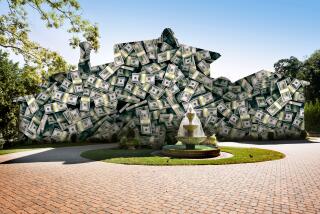Porsche Lobbies to Repeal 10% Federal Luxury Tax
- Share via
RENO, Nev. — The federal luxury tax has devastated pricey automobile sales and has cost millions of dollars in revenues associated with lost jobs, a Porsche official says.
“The impact of the luxury tax on the high-line automobile industry as a whole and Porsche Cars specifically has been devastating,” said Luke Baer, vice president and general counsel of Porsche Cars North America Inc., based in Reno.
Baer asked the Nevada Commission on Economic Development to urge the state’s congressional delegation to co-sponsor legislation repealing the tax.
Baer said Sen. Harry Reid, a Democrat, and Republican Rep. Barbara Vucanovich are among numerous co-sponsors of bills pending in both houses.
Although Sen. Richard Bryan and Rep. James Bilbray, both Democrats, have indicated that they would back the repeal measures, Baer said their support as co-sponsors is necessary to ensure that the bills make it out of committees.
The tax, in effect since Jan. 1, imposes a 10% levy on cars costing more than $30,000. Porsche models range in price from $39,850 to nearly $80,000, Baer said.
Sales of luxury boats, furs and jewelry also are subject to the tax.
Porsche sales through August are down 51%, compared to a 15% decline in the auto industry overall, Baer said. He predicted the company will report a loss on 1991 earnings.
“This luxury tax issue is not some abstract national policy which plays itself out on the national political stage,” he said. “It is, simply stated, a local jobs issue.”
The company this year cut 77 jobs nationwide, 46 of those in the Reno area.
Baer said government projections indicated that the tax on Porsche sales through August would generate about $500,000. But those gains are minuscule compared to the resulting economic losses, he said.
“Based upon our actual experience, the luxury tax has cost state and federal governments over $19 million,” he said.
The jobs cut in the Reno area total $2.1 million in wages and benefits and equate to an annual economic loss to the community of $10 million, he added.





